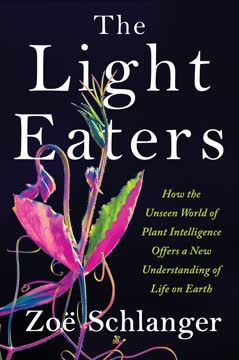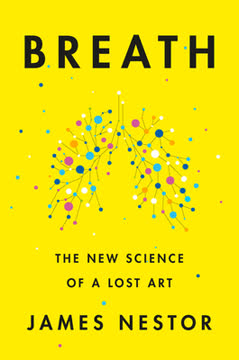つの重要なポイント
1. 向精神性植物の歴史と文化的意義
私たち人間は、物事を複雑にし、最も基本的な生物学的反応に文化の豊かな色彩と質感を織り交ぜる深い欲求を持っているようだ。
古代の根、現代の影響。 向精神性植物は何千年もの間、人類によって使用され、文化、宗教、社会を形作ってきた。古代文明におけるアヘンケシの影響から啓蒙時代におけるコーヒーの役割まで、これらの植物は人類の歴史において重要な役割を果たしてきた。その使用は、精神的および医療的な目的から、現代における娯楽的および治療的な応用へと進化してきた。
植物使用における文化的多様性。 異なる文化は向精神性植物と独自の関係を築いてきた:
- 先住民:ペヨーテやサンペドロサボテンの神聖な使用
- 東洋文化:茶道や精神的な実践
- 西洋社会:生産性向上のためのコーヒー
- 世界的影響:タバコとアルコールの普及
2. アヘン:庭の実験から世界的危機へ
この距離からは見えないが、これらの山々を覆う光沢のある緑の葉が、今まさに熱帯の太陽の強い光線と赤土の栄養素を1,3,7-トリメチルキサンチンに変えている。
好奇心から危機へ。 ポランの庭でのアヘンケシ栽培の個人的な実験は、アヘンとその派生物に関するより大きな問題の縮図である。単純な園芸プロジェクトから法的および倫理的なジレンマに直面するまでの旅は、アヘンの使用と乱用の世界的な軌跡を反映している。
オピオイド危機。 ポランがケシの栽培の合法性に焦点を当てている間、真の危機は他の場所で進行していた:
- パデュー・ファーマのオピオイド危機への役割
- 処方オピオイドからヘロインやフェンタニルへの移行
- コミュニティや個人への壊滅的な影響
- 痛みの管理と依存症予防のバランスの難しさ
3. カフェイン:世界で最も人気のある向精神薬
カフェインは私たちの睡眠危機の唯一の原因ではない。スクリーン、アルコール(REM睡眠に対する影響はカフェインが深い睡眠に与える影響と同様に厳しい)、薬物、仕事のスケジュール、騒音や光の汚染、不安などが睡眠の持続時間と質を損なう要因となり得る。しかし、カフェインはその原因のトップに近い位置にある。
遍在する刺激物。 主にコーヒーやお茶に含まれるカフェインは、世界中の成人の約90%が消費している。その広範な使用は、生産性、睡眠パターン、全体的な健康に深い影響を与えている。
カフェインの影響:
- 覚醒と集中力の向上
- 睡眠障害や不安の可能性
- 労働文化と生産性の形成における歴史的役割
- 睡眠の質と量との複雑な関係
- 依存性と禁断症状
4. メスカリン:先住民のルーツを持つ忘れられたサイケデリック
私がインタビューした先住民は、メスカリンという分子や私がそれで経験したような体験には興味がなかった。彼らにとって、力はペヨーテやサンペドロのサボテンにあり、特に儀式においてその力が現れるサボテンにあった。
認識の文化的分断。 ペヨーテやサンペドロサボテンから得られるメスカリンは、西洋の科学的アプローチと先住民の精神的実践との間の顕著な対比を表している。研究者が化学物質に焦点を当てる一方で、ネイティブアメリカン文化は植物の全体的で儀式的な使用を重視している。
メスカリンの独自の特性:
- 他のサイケデリックよりも穏やかで内省的
- 精神健康治療における治療的使用の可能性
- 文化的盗用と保全に関する論争
- 法的地位:ネイティブアメリカンの宗教的使用のために保護されているが、他の人には違法
5. 向精神性植物が人間の意識と社会に与える影響
向精神薬は、服用する個人の想像力を刺激し、創造性を養うことで、私たちや時には私たちの文化に利益をもたらすこともある。
変わった状態、変わった社会。 向精神性植物は人間の意識に深い影響を与え、文化的、芸術的、科学的な革新をもたらしてきた。それらの知覚と認知への影響は、新しい思考や創造の方法を刺激してきた。
社会的影響:
- 芸術、音楽、文学への影響
- 宗教的および精神的実践における役割
- 科学的および哲学的思考への貢献
- 社会規範と価値観の形成
- 既存の権力構造への挑戦
6. 植物由来薬物に関する法的および倫理的複雑性
この戦争が戦われている分類法を宇宙人や農民のマティアスに説明するのは難しいだろう。
恣意的な区別。 向精神性植物の法的地位はしばしば恣意的に見え、科学的証拠よりも文化的および歴史的要因が大きな役割を果たしている。これにより、複雑でしばしば矛盾する法律や執行慣行が生じている。
法的および倫理的考慮事項:
- 薬物のスケジューリングと分類の不一致
- 「麻薬戦争」が個人の自由と科学研究に与える影響
- 特定の植物使用に対する文化的および宗教的免除
- 非犯罪化および合法化に関する議論
- 公衆衛生の懸念と個人の権利のバランス
7. サイケデリック使用における個人的探求と文化的感受性
私は学術書にいくつかの啓示を見出した:ジョセフ・D・カラブレーゼの『異なる薬:ネイティブアメリカン教会におけるポストコロニアルヒーリング』、2013年出版。
敬意を持った関与。 ポランの向精神性植物に関する個人的な探求は、文化的盗用と伝統的な薬を元の文脈外で使用する倫理について重要な質問を提起している。
文化的境界のナビゲート:
- 歴史的および文化的文脈の理解の重要性
- 先住民の知識と実践の尊重
- 個人的な好奇心と文化的感受性のバランス
- 経験豊富な実践者からの指導の求め
- 西洋の視点の限界の認識
8. 植物薬の潜在的な治癒力
トラウマは必ずしも個別の劇的な出来事ではない。トラウマが本当に意味するのは、予測不可能な力に襲われたときに感じる無力感だと彼女は言った。
娯楽を超えて。 多くの向精神性植物は、制御された環境で使用されると、うつ病、不安、PTSDなどのさまざまな精神健康状態の治療に有望である。この可能性は、科学的関心と臨床研究の再燃を促している。
治療的応用:
- 依存症および物質乱用の治療
- 慢性痛の管理
- 終末期不安の対処
- 精神健康における画期的な治療法の可能性
- 伝統的知識と現代医学の統合
9. サイケデリック体験におけるセット、セッティング、意図の役割
私たちの意識が認識することを許さないものがそこに(またはここに)たくさんあるという概念は、予測符号化の神経科学的概念と一致している。
文脈が重要。 向精神性植物の効果は、使用者の心の状態、物理的環境、および意図によって大きく影響される。これらの要因を理解することは、治療的および娯楽的使用の両方において重要である。
重要な要素:
- 準備と意図設定の重要性
- 経験豊富なガイドやファシリテーターの役割
- 体験における物理的環境の影響
- 体験中に得た洞察の統合
- 無監督または計画の不十分な使用の潜在的リスク
10. 植物薬実践における伝統と現代のバランス
「もう一つの考えは、植物の精神と深くつながり、植物と話し、心でそれを聞くことです。明確な意図と祈りがあれば、植物自体がどれだけ飲むべきか、いつ飲むべきかを教えてくれます。」
世界をつなぐ。 向精神性植物への関心が高まる中、伝統的な実践と現代の科学的アプローチとの間に緊張が生じている。先住民の知識を尊重しながら科学的理解を受け入れるバランスを見つけることが重要な課題である。
アプローチの統合:
- 伝統的治療者と西洋の研究者の協力
- 植物薬使用の倫理的ガイドラインの策定
- 絶滅危惧種の植物と伝統的知識の保護
- 現代の環境に適応した古代の実践
- 持続可能性と公平なアクセスの問題への対処
最終更新日:
FAQ
What's This Is Your Mind on Plants about?
- Exploration of psychoactive plants: Michael Pollan investigates opium poppy, caffeine, and mescaline, focusing on their effects on human consciousness and culture.
- Cultural and historical context: The book provides a historical overview of how these plants have influenced societies, economies, and individual behaviors.
- Personal experimentation: Pollan shares his own experiences with these substances, offering insights into their psychological and physiological effects.
Why should I read This Is Your Mind on Plants?
- Insightful and engaging writing: Pollan's narrative style makes complex topics accessible, blending personal anecdotes with thorough research.
- Relevance to contemporary issues: The book addresses current discussions around drug use, addiction, and mental health, encouraging readers to reconsider their relationship with psychoactive substances.
- Broader understanding of consciousness: By exploring how plants affect our minds, the book invites readers to reflect on their own experiences and the nature of consciousness itself.
What are the key takeaways of This Is Your Mind on Plants?
- Complex relationship with plants: Humans have a long-standing relationship with psychoactive plants that can both heal and harm.
- Cultural constructs of legality: Societal norms shape the legality and acceptance of certain substances, reflecting deeper cultural values and anxieties.
- Personal responsibility and awareness: Pollan advocates for a nuanced understanding of drug use, emphasizing the importance of intention and context.
What are the best quotes from This Is Your Mind on Plants and what do they mean?
- “The same opiates that killed some fifty thousand Americans by overdose in 2019 also make surgery endurable.”: Highlights the paradox of opiates as both lifesaving and dangerous.
- “In a society’s choice of psychoactive substances we can read a great deal about both its fears and its desires.”: Suggests that societal choices reveal deeper cultural values and anxieties.
- “The energy that cup of coffee or tea has given you has been borrowed.”: Reflects the idea that caffeine provides a temporary boost at the cost of future energy.
How does Michael Pollan approach the topic of opium in This Is Your Mind on Plants?
- Historical context: Pollan discusses opium's long history, from ancient medicine to modern addiction issues.
- Personal narrative: He shares his experiences growing opium poppies, illustrating the tension between curiosity and legality.
- Cultural implications: The book examines how opium's legal status reflects societal fears and the complexities of addiction.
How does Michael Pollan's personal experience with caffeine affect his views in This Is Your Mind on Plants?
- Caffeine deprivation experiment: Pollan abstains from caffeine for three months, noting improvements in sleep and well-being.
- Reevaluation of caffeine's role: His experience leads him to question societal norms surrounding caffeine consumption.
- Insights into addiction: Pollan's journey reveals the complexities of addiction and the psychological mechanisms at play.
What insights does This Is Your Mind on Plants provide about mescaline?
- Cultural and spiritual use: Pollan examines mescaline's use among Indigenous peoples, highlighting its role in spiritual ceremonies.
- Personal exploration: He shares his experiences with mescaline, emphasizing the importance of context and intention.
- Potential for therapeutic use: The book discusses mescaline's potential in mental health treatment, advocating for respectful and informed use.
How does Michael Pollan define a "drug" in This Is Your Mind on Plants?
- Broad definition: Pollan challenges conventional definitions, suggesting many substances could be classified as drugs.
- Cultural context: Societal acceptance plays a significant role in defining what is considered a drug.
- Legal implications: Legal definitions are often arbitrary and influenced by cultural norms, crucial for addressing drug use issues.
What role does self-experimentation play in This Is Your Mind on Plants?
- Personal insight: Pollan emphasizes self-experimentation to understand psychoactive substances' effects.
- Scientific approach: He combines personal narratives with scientific research, enriching the reader's understanding.
- Encouragement for readers: Pollan advocates for readers to engage in self-experimentation for greater awareness and understanding.
How does This Is Your Mind on Plants address the concept of addiction?
- Complex nature of addiction: Pollan explores substances' dual nature, emphasizing addiction's complexity.
- Cultural perceptions: Societal views on addiction shape legal status and stigma surrounding substances.
- Personal responsibility: Pollan advocates for a nuanced understanding, emphasizing intention and context in substance use.
How does Michael Pollan address the ethical implications of caffeine consumption in This Is Your Mind on Plants?
- Historical exploitation: Pollan links coffee and tea production to colonialism and slavery.
- Modern economic disparities: He highlights ongoing exploitation of coffee farmers, who receive minimal profits.
- Call for awareness: Pollan encourages readers to consider the ethical dimensions of their caffeine consumption.
What insights does This Is Your Mind on Plants offer about the relationship between humans and psychoactive plants?
- Symbiotic relationship: Pollan emphasizes the interconnectedness of humans and psychoactive plants.
- Cultural significance: The book explores how these plants have influenced human culture and civilization.
- Potential for healing: Pollan highlights the therapeutic potential of psychedelics for personal transformation and healing.
レビュー
本書『This Is Your Mind on Plants』は、オピウム、カフェイン、メスカリンという三つの向精神物質を探求している。読者は本書を科学的というよりも回顧録のように感じ、ポランが個人的な経験や歴史的背景を語る様子を楽しんだ。多くの読者は彼の魅力的な文体と好奇心を評価したが、もっと科学的な深みを求める声もあった。オピウムとカフェインの章は概ね好評だったが、メスカリンの章には賛否両論があった。ポランの依存症に対するアプローチを軽率だと感じる読者もいれば、彼のネイティブアメリカンの慣習に対する視点に疑問を抱く読者もいた。全体として、意見は分かれ、一部の読者は本書を魅力的だと感じる一方で、他の読者は失望した。
Similar Books



















